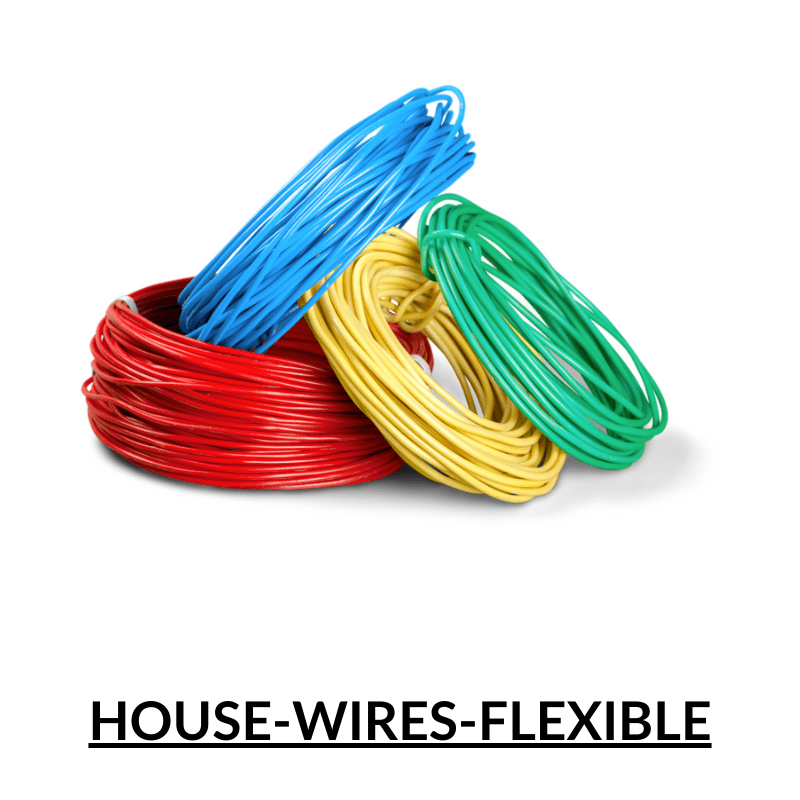Telephone-cables
Telephone cables are a type of communication cable that is used to transmit voice and data signals over long distances. They are typically made up of a bundle of insulated wires that are twisted together and surrounded by protective sheathing.



- Conductors: Telephone cables typically have one or more pairs of copper or aluminum wires as the conductors that carry the electrical signals.
- Insulation: Each conductor is covered with a layer of insulation material to prevent any electrical interference or crosstalk between the pairs.
- Twisted pair design: The wires are twisted together in a specific pattern to reduce interference and improve the quality of the signal transmission.
- Shielding: Some telephone cables have an outer layer of shielding to protect against external electromagnetic interference.
- Sheath: A protective outer layer or sheath covers the cable, providing physical protection and durability.
- Length: The length of telephone cables can vary depending on the distance between the two endpoints.
- Landline telephone service: Telephone cables are used to connect homes and businesses to the public switched telephone network (PSTN) to provide landline telephone service.
- Voice over IP (VoIP) service: Telephone cables can be used to connect VoIP phones to the internet and transmit voice signals as digital data.
- Intercom systems: Telephone cables can be used to connect intercom systems in large buildings or facilities, allowing for internal voice communication.
- Alarm systems: Some alarm systems use telephone cables to communicate with a central monitoring station.
- Modems: Telephone cables can be used to connect modems to a network, allowing for data transmission over a telephone line.
- Fax machines: Fax machines can also use telephone cables to transmit fax signals over a telephone line.
The conductors in telephone cables are typically made of copper or aluminum. Copper is the most common material used due to its excellent electrical conductivity, durability, and low resistance to corrosion. Aluminum is also used, especially in large telephone cables for long-distance transmission, as it is lighter and more affordable than copper.
The conductors in telephone cables are typically thin, with a diameter of around 0.4 to 0.8 mm. These thin conductors are twisted together to form pairs, which reduces interference and crosstalk between the pairs. The number of pairs in a telephone cable can vary, ranging from just a few pairs to several hundred pairs in large telephone cables used for long-distance transmission.
Insulation is an important component of telephone cables as it helps prevent electrical interference and crosstalk between the pairs of conductors. The insulation material used in telephone cables is typically made of a plastic or polymer compound.
The most common insulation material used in telephone cables is polyethylene, which is a thermoplastic material with excellent electrical insulation properties. Polyethylene is also resistant to moisture, heat, and chemicals, which makes it ideal for use in telephone cables.
Explore Our Copper Products
Explore Our Wire & Cables
Telephone-cables
Telephone cables are a type of communication cable that is used to transmit voice and data signals over long distances. They are typically made up of a bundle of insulated wires that are twisted together and surrounded by protective sheathing.
Features
- Conductors: Telephone cables typically have one or more pairs of copper or aluminum wires as the conductors that carry the electrical signals.
- Insulation: Each conductor is covered with a layer of insulation material to prevent any electrical interference or crosstalk between the pairs.
- Twisted pair design: The wires are twisted together in a specific pattern to reduce interference and improve the quality of the signal transmission.
- Shielding: Some telephone cables have an outer layer of shielding to protect against external electromagnetic interference.
- Sheath: A protective outer layer or sheath covers the cable, providing physical protection and durability.
- Length: The length of telephone cables can vary depending on the distance between the two endpoints.
Applications
- Landline telephone service: Telephone cables are used to connect homes and businesses to the public switched telephone network (PSTN) to provide landline telephone service.
- Voice over IP (VoIP) service: Telephone cables can be used to connect VoIP phones to the internet and transmit voice signals as digital data.
- Intercom systems: Telephone cables can be used to connect intercom systems in large buildings or facilities, allowing for internal voice communication.
- Alarm systems: Some alarm systems use telephone cables to communicate with a central monitoring station.
- Modems: Telephone cables can be used to connect modems to a network, allowing for data transmission over a telephone line.
- Fax machines: Fax machines can also use telephone cables to transmit fax signals over a telephone line.
Conductors
The conductors in telephone cables are typically thin, with a diameter of around 0.4 to 0.8 mm. These thin conductors are twisted together to form pairs, which reduces interference and crosstalk between the pairs. The number of pairs in a telephone cable can vary, ranging from just a few pairs to several hundred pairs in large telephone cables used for long-distance transmission.
Insulated
The most common insulation material used in telephone cables is polyethylene, which is a thermoplastic material with excellent electrical insulation properties. Polyethylene is also resistant to moisture, heat, and chemicals, which makes it ideal for use in telephone cables.


















